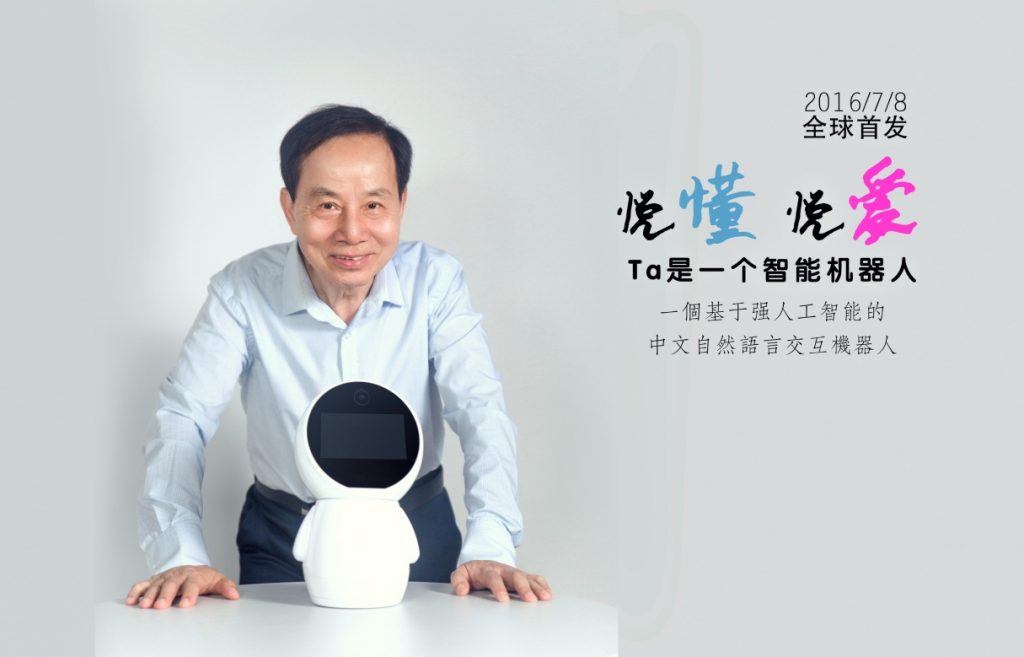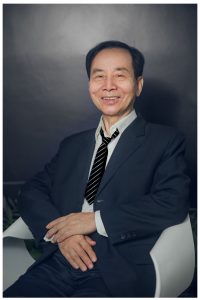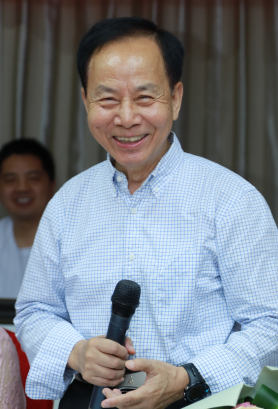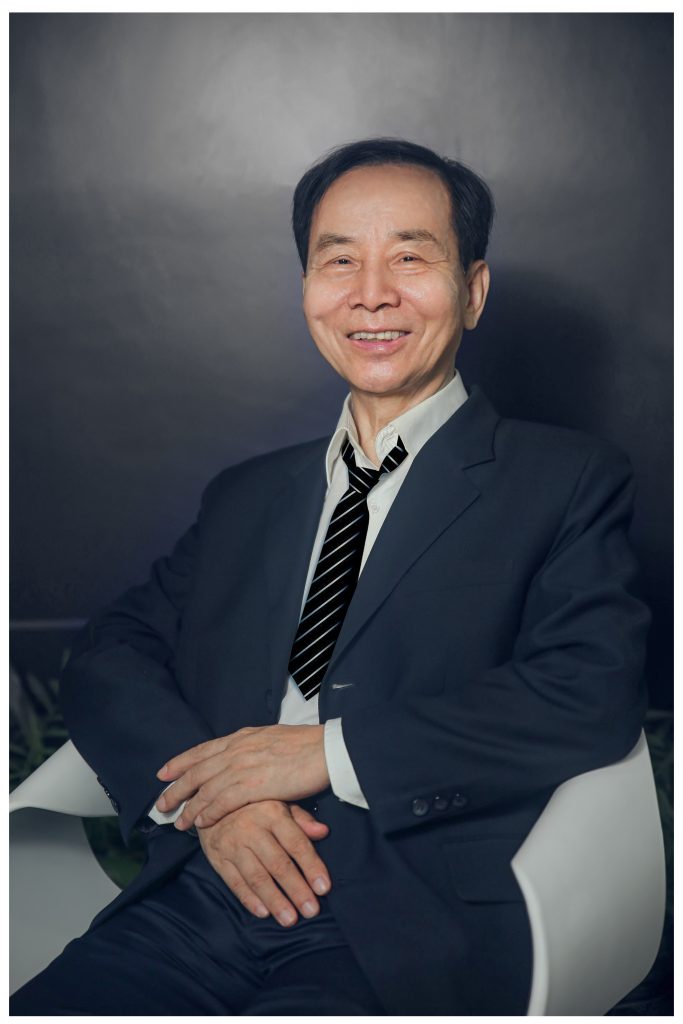
一. 研究方向
(1)人工智能
(2)专家系统
(3)智能控制
(4)智能机器人
(5)计算智能
(6)智能驾驶
(7)智能教育
(8)智慧医疗
二. 承担的科研项目情况
蔡教授主持和参加国家自然科学基金等科技和教学研究30多项,进行的研究课题包括:
1.人类染色体核型分析云服务平台建设。湖南省新一代人工智能重大专项项目,2019年7月
2.AIaaS智能医疗云服务系统(平台)。国家工信部2018人工智能与实体经济深度融合创新项目,2018年9月
3.国家自然科学基金重大专项《视听觉信息的认知计算》子项目“自主驾驶车辆关键技术与集成验证平台”(2013-2017)
4.面向动态约束优化问题的进化算法:设计、分析与应用(2013-2016)
5.国家自然科学基金面上项目“异质进化算法集成研究”(2012-2015)
6.高速公路车辆智能驾驶中的关键科学问题研究 (国家自然科学基金重大专项重点项目),2009-2012。
7.基于进化算法的约束处理技术研究(国家自然科学基金项目),2009-2011。
8.异质多移动体的协同XX与重构技术基础研究 (国家国防科学基础研究项目),2006-2008。
9.免疫计算的测不准有限计算模型与鲁棒性分析 (国家自然科学基金项目),2005-2007。
10.未知环境中移动机器人导航控制的理论与方法研究(国家自然科学基金重点项目),2003-2006。
11.离散型多智能体的非光滑鲁棒建模研究(国家自然科学基金项目),2000-2002。
12.智能控制系统的鲁棒性研究(国家自然科学基金项目),1996-1998。
13.高速列车运行模糊控制研究(国家自然科学基金重点项目),1993-1996。
14.智能控制的结构与特性研究 (国家自然科学基金项目),1991-1993。
15.工业过程的神经控制及应用研究(国家博士点基金项目),1995-1997。
16.约束优化进化算法的研究(国家博士点基金项目),2009-2011。
17.自主机器人的进化控制研究(211工程子项目)。
18.湖南省科技计划项目多项(1998-2020)。
19.人工智能及其应用(“十一五”国家级规划教材研究,2006-2010)。
20.人工智能基础(“十一五”国家级规划教材研究,2007-2010)。
21.人工智能网络课程(国家《新世纪网络课程建设工程》项目,2000-2003)。
22 大型航空发动机起动电源装置(1978-1982)
三、科研成果:
对科学技术的主要贡献:
1.提出“智能控制四元交集结构理论”(1996年)
把信息论引入智能控制学科结构,提出“智能控制四元交集结构理论”,发展了智能控制理论,揭示了智能控制与相关学科领域的内在联系,丰富了高级自动化的内容,促进了国际智能控制理论的发展。该理论成果已被收入《中国大百科全书》《自动控制与系统工程》分册的“智能控制”词条。
2.首创“机器人规划专家系统”(1985年)
基于人工智能原理和专家系统技术,研究机器人规划的新机理和新方法,于1985年在国际上首先提出并建立了机器人规划专家系统,实现了专家系统与机器人技术的结合,先后完成机器人任务规划、机器人避障运动路径规划、机器人柔性装配规划、机器人零件运送规划和多机器人协调运动规划等,在国际上为基于知识的生产过程自动规划和高层控制开辟了一条新途径,提高了规划性能,对于提高生产的自动化和智能化水平具有重要意义。
3.提出进化控制的思想和体系结构(1999年),并建立了进化控制系统原型,把进化思想用于机器人控制和路径规划,为进化控制建立基础,为智能控制开辟一个新的分支,并促进智能控制的发展。
4.提出免疫控制的思想和免疫控制系统的一般结构(2003年) ,建立了免疫控制交叉学科的框架基础(2006年)。在智能控制四元交集结构理论的基础上提出的免疫控制的四元交集结构理论。
5.提出智能科学学科体系的初步框架和学科特征(2001年)
在“中国自动化领域发展战略高层学术研讨会”上(2001年)和2003 IEEE International Conference on Robotics, Intelligent Systems and Signal Processing上作大会特邀报告(Intelligent Science: Disciplinary Frame and General Features),多次提出智能科学学科体系的初步框架,论述智能科学技术的基础,分析智能科学研究的若干重要课题,为一门新的交叉学科的诞生起到重要促进作用,对发展智能科学具有重大意义。
6.提出晶闸管直流可逆自动调速系统控制指令的数学模型(1978年),具有普适意义,并用于晶闸管逻辑无环流可逆调速系统的逻辑设计,其正确性和有效性为众多系统的实现所证明。
7. 编著出版我国智能科学领域4个学科的首部教材/专著,即《人工智能及其应用》(1987年,清华大学出版社)、《智能控制》(1990年,电子工业出版社)、《机器人原理及其应用》(1988年,中南工大出版社)、《智能系统原理、算法与应用》(2014年,机械工业出版社),为智能控制、人工智能、机器人学和智能系统在中国的传播和发展起到重大的推动作用。这些著作已出版了多个版本,共发行约100万册,拥有数百万高层读者,为国内数以百计的院校所使用。此外,《Intelligent Control:Principles,Techniques and Applications》和《Artificial Intelligence: From Beginning to Date》在国外出版,受到读者欢迎,获得普遍使用。
8.对智能机器人和进化优化做出突出贡献而当选IEEE Fellow(院士)(For contribution to intelligent robotics and evolutionary computation),2016。
9.对人工智能和智能系统做出系列贡献而获得2014年吴文俊人工智能科技奖成就奖
获奖题目:创建智能科学理论,创新智能科学教育,推动智能科学发展。
在人工智能的基础研究、技术开发、著作和教材编著出版、教育教学和人才培养诸多方面做出具有国际先进水平的创造性贡献。
10.创造性地应用人工智能技术进行国家级教育研究和教学改革。2003-2018年,在主持多门国家级质量工程中,探索并提出一种课程群建设的多元智能理论和本体论的知识组织方法;2001-2003年主持国家级人工智能网络课程研究,在向导学习、个性化以及算法实验上采用人工智能技术本身来实现人工智能网络课程,创建具有网络化、智能化和个性化等显著特色和先进性,获评国家教育部新世纪优秀网络课程。这些成果被广泛应用与借鉴,在全国产生良好的辐射和影响。
11.支持成立湖南省自兴人工智能研究院,进行人工智能产业化开发。
担任首席科学家,指导年轻研究人员对智慧医疗、智能驾驶和智能机器人等领域进行创新性开发,做出具有国家领先水平的成绩。
12.在国内外学术刊物和会议上发表论文一千多篇,被SCI,EI和ISTP收录500多篇。
在计算机科学等领域发表论文1000多篇,被广泛引用,国际他引上万次,国内他引数万次,并人选“2017科睿唯安(Clarivate Analytics)高被引科学家榜单。
四.获奖情况
从事科教研究30多项,获国际奖励2项,全国奖励2项,省部级一等奖1项,二等奖1项,三等奖2项,省优秀论文一等奖8项,二等奖1项,其它奖励4项。一些研究处于国内外领先地位,已成为相关学科的学术带头人之一,被誉为“中国人工智能教育第一人”、“中国智能控制的奠基者”和“智能机器人学科的创始人”。他的名字和成就已被列入英国剑桥国际传记中心出版的《国际名人录》,《国际知识分子名人录》,《联合国专家名册》,《亚洲太平洋地区名人录》,《中国当代科学家和发明家大词典》,《中华当代名人词典》,《当代中国科技名人成就大典》以及《中国专家人名辞典》,《中国优秀科技图书要览》和《中国大百科全书》等。获奖情况如下:
1.IEEE Life Fellow(终身院士),2019年1月1日生效
2.2017年11月,入选“2017科睿唯安(Clarivate Analytics)高被引科学家”榜单。
3.2017年度全国教育课程改革先进个人称号,中国教育发展学会,2017年7月。
4.第六届全国教育课程改革教研成果一等奖,中国教育发展学会,2017年7月。
5.IEEE Fellow(院士),2017年1月1日生效
6.湖南省自然科学奖二等奖,2016年2月。
7.国际IEEE计算智能学会优秀博士学位论文奖(学生:龚涛,导师:蔡自兴),IEEE CIS,2015。
8.全国人工智能科技最高奖:吴文俊人工智能科学技术奖成就奖,中国人工智能学会,2014年11月。
9.2013年感动世界年度人物当选证书,2014年3月。
10.全国素质教育先进工作者,2013年9月。
11.首届全国素质教育教研成果一等奖,2013年9月。
12.湖南省高等教育省级教育成果二等奖,2013年12月。
13.中国人工智能学会重大贡献奖,2012年12月。
14.中南大学高等教育教学成果奖一等奖,2012年10月。
15.中南大学教学成果一等奖,2012年10月。
16.中南大学优秀博士学位论文奖,(学生:王勇,导师:蔡自兴)2012年11月。
17.中国人工智能学会重大贡献奖,2012年12月。
18.中南大学高等教育教学成果奖一等奖,2012年10月。
19.全国优秀教育园丁荣誉称号,2012年5月。
20.第三届全国教育科研创新成果一等奖,2012年5月。
21.徐特立教育奖,湖南省人民政府,2009。
22.湖南省自然科学优秀学术论文 一等奖 湖南省科技厅、省科协、省人事厅,1988,1996,2000-2016年,共8次。
23.国家级“智能科学基础系列课程教学团队”,国家教育部,2008。
24.世界华人重大学术科研成果特等奖(人工智能及其应用系列成果),世界华人文化名人协会,2007。
25.国家级“人工智能”全国双语教学示范课程,国家教育部,2007。
26.国家级“智能控制”精品课程,国家教育部,2006。
27.获宝钢教育基金全国优秀学生特等奖(学生:龚涛,导师:蔡自兴),2006年。
28.中国人工智能学会杰出机器人学教育奖,中国人工智能学会,2006。
29.国际导航与运动控制科学院(International Academy of Navigation and Motion Control)院士,
30.2003年度中南大学教学名师奖,2004年1月。
31.2003年中南大学师德先进个人,2004年3月。
32.国家级全国高校教学名师奖,国家教育部,2003年9月。
33.宝钢教育基金全国优秀教师奖特等奖,宝钢集团教育基金,2003。
34.国家级“人工智能”精品课程,国家教育部,2003。
35.湖南省精品课程等,湖南省教育厅,2003。
36.全国优秀教材奖一等奖(机器人学),国家教育部,2002。
37.国际优秀作品奖(人工智能及其应用),2002。
38.中南大学211工程先进工作者,2002年1月。
39.人工智能网络课程(国家教育部新世纪网络课程建设工程项目),优秀网络课程,国家教育部,2002。
40.湖南省高校多媒体教育软件大赛一等奖,省教育厅,2002。
41.中南大学先进工作者、优秀科技工作者等多项奖励,中南大学,2001。
42.中南大学教学名师、教学成果、优秀教材、精品课程等多项,中南大学,2001。
43.全国高校自然科学奖二等奖(智能科学技术基础及学科体系研究),2001年5月。
44.湖南省高校省级优秀教学成果一等奖(智能控制与智能自动化系列教材研究) 湖南省教育厅,2001。
45.中国2000年机器人学大会杰出机器人学教育奖。中国人工智能学会、中国自动化学会、中国宇航学会、中国电子学会、中国机械工程学会、中国汽车工程学会、中国机器人工程协会、国家863计划智能机器人主题专家组、国家863计划空间机器人主题专家组等9单位,2000。
46.中南大学优秀教材一等奖(人工智能及其应用研究) ,1999年10月。
47.中南大学优秀教材一等奖(智能控制基础与应用) ,1999年10月。
48.中南大学先进教育工作者,1999年10月。
49.纽约科学院(New York Academy of Sciences)院士,1998。
50.国家教育部科技进步奖 一等奖(人工智能及其应用),1998。
51.湖南省科技进步三等奖(智能控制及其应用),1998。
52.湖南省教委科技进步一等奖(智能控制),1997。
53.第三届全国优秀教材(电子类) 一等奖(智能控制) 电子工业部,1996。
54.中南大学优秀教材一等奖(智能控制),1995年9月。
55.国务院政府特殊津贴证书,中华人民共和国国务院,1992。
56.中南大学先进科技工作者,1991年11月。
57.中南工业大学理论成果二等奖,中南工业大学,1990。
58.中南工业大学理论成果一等奖,中南工业大学,1989。
59.湖南省重大科技成果奖(航空发动机新型起动装置),湖南省人民政府,1981。
60.马拉松(195公里)赛跑优秀奖(成绩3小时另5秒),获国家二级运动员证书,1959年12月。
61.“重返祖国”获得交通大学庆祝中华人民共和国国庆十周年征文比赛一等奖,1959年10月。
五.国家发明专利
1.一种移动机器人三维环境感知方法 蔡自兴; 邹小兵; 王璐; 段琢华; 于金霞; 文志强; 陈白帆; 郑敏捷中南大学 2007-08-01 (未批准)
2.基于人工免疫系统的移动机器人软件故障诊断系统 龚涛; 蔡自兴 中南大学 2007-08-01
3.一种电法勘探信号接收机及其放大倍数智能控制方法 陈儒军; 蔡自兴; 何继善; 丁科中南大学 2007- 08-01
4.一种可重构的多移动机器人通信方法 蔡自兴; 陈爱斌; 陈白帆; 文志强; 余伶俐; 匡林爱; 任孝平; 邹磊中南大学 2008-07-09
5.人工场源电法勘探信号接收机放大倍数设置方法 陈儒军; 蔡自兴; 何继善; 丁科 中南大学 2007-04-11
6.一种基于暗原色的自动图像去雾方法
7.基于有限状态自动机的多艾真体动态多目标协作跟踪方法
8.一种汽车行驶过程中的状态估计方法
9.一种集装箱对准系统及对准方法
10.人类染色体影像处理系统






